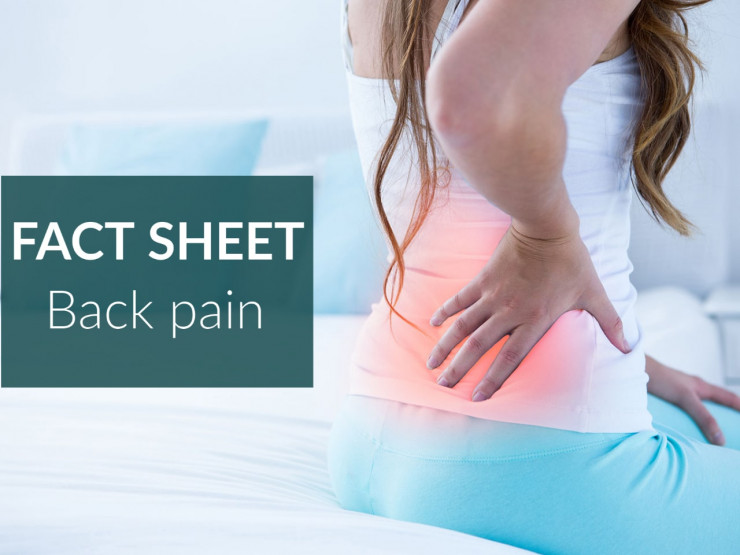Back pain is a very common health problem that affects around 80% of people in the UK. Although uncomfortable, you can usually ease it with self-care and over the counter medicines.
Here at Whitworth, we’re passionate about helping you take care of your health. That’s why we’ve put together this short factsheet on dealing with back pain.
What is back pain?
Most people will experience back pain sometime in their lives. In fact, it’s responsible for around 1 in 5 visits to the GP.
If you suffer from back pain, you could experience discomfort anywhere on your back or spine. This includes pain, stiffness, soreness and aches and can range from a minor to a painful and debilitating problem.
It can also trigger other symptoms such as leg pain, pins and needles and sciatica (shooting pains down your legs and in your buttocks).
Usually, back pain isn’t related to a serious or underlying condition. There usually aren’t any irritated, trapped or compressed nerves but simply a problem triggered by your lifestyle.
This can include bad posture, sleeping in an uncomfortable position, heavy lifting, awkward movement, muscle tension caused by stress or even wear and tear due to old age.
Occasionally it’s caused by things like a slipped disc, bulging or ruptured disc, arthritis or osteoporosis.
What are the symptoms of back pain?
Back pain can be very uncomfortable and occur on one or both sides.
You might notice it between your shoulder blades, at the top of your back, at waist level, in your lower back or even in your buttocks and down your legs.
The pain can range from a general dull ache to sharp pain when you move.
What can you do about your back pain?
The good news is that your back pain can usually be eased or resolved with simple self-care tricks you can use at home. With any luck, you’ll be back to your active self in no time! Here are some tips to help.
Stay active
Even if you’re uncomfortable, you should avoid sitting on the sofa or lying in bed. Gentle movement is best. Keep active and do your best to continue your daily activities. If you rest, you’re more likely to experience more pain and take longer to recover. This is key to overcoming back pain.
Use hot or cold compression packs
You can get excellent short term relief by getting a hot or cold compression pack from your local branch of Whitworth or buying online. Hot water bottles and warm baths can also help relax tense muscles and speed up your recovery.
Take anti-inflammatory medicines and use topical treatments
Ease your discomfort by taking over the counter anti-inflammatories such as ibuprofen. Ask your pharmacist to ensure it’s safe for you.
Switch your sleeping position
Take the strain off your back and avoid niggles by trying different sleeping positions. Consider lying flat on your back, sleeping on your side with a pillow between your knees or placing a rolled-up towel under your lower back. Experiment until you find something that works for you.
Try exercises
Exercises such as walking, swimming, yoga, Pilates or other exercises can help stretch tense muscles and relieve discomfort.
Lift carefully
If you need to lift something, ensure you bend your knees instead of your back and keep the item close to your body. If an item is particularly heavy, make sure you ask for help. Your back will thank you!
Speak to your boss
Back pain can often cause absence from work or an inability to perform your usual duties. If this is the case, speak to your employer to consider other options such as altered hours or workplace adaptations.
Consider alternative treatments
Many find that visiting a physiotherapist, chiropractor, osteopath or acupuncturist can help with their back pain. Always make sure that they’re registered to avoid worsening your problem.
Stay optimistic
Back pain usually gets better on its own and staying positive can help you take a proactive approach and recover faster.
Should you see your doctor for back pain?
If your back pain doesn’t improve in three days, recurs for more than 6 weeks, gets worse, causes serious pain or prevents you from living a normal life, get help immediately.
You can pop into your local branch of Whitworth for advice or consider seeing your GP.
However, you should seek immediate medical help if:
The pain is severe and gets worse
You have a fever or chest pain
You are under 20 or over 50 and the pain is new
You are unsteady on your feet
The pain is affecting your sleep
You are experiencing weight loss or loss of bladder or bowel control
You have pins and needles around your bottom, genitals or both legs
Get help for your back pain
Ease your pain and get back on your feet faster by following the self-care tips we’ve shared here.
Stay active, use painkillers or topical treatments, switch your sleeping position, try alternative therapies and most importantly, get help if you need it.
Our friendly team of experts is always here to answer your questions, provide support and help you live a healthy, happy and active life. Come and say hello today.



